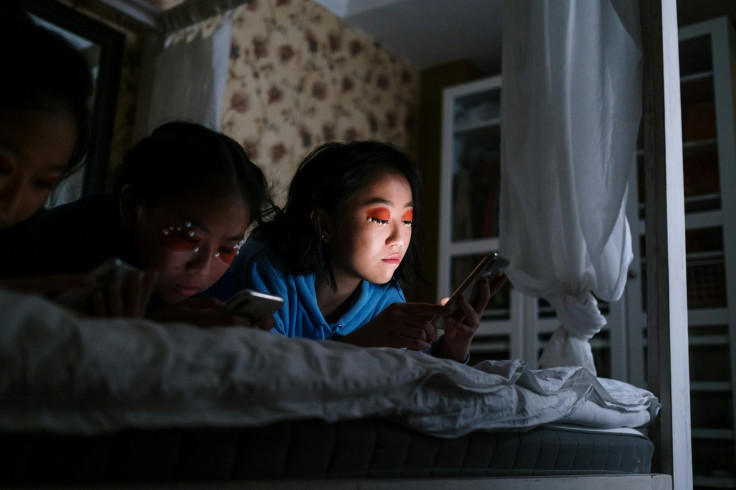Meet China's 'Rat People': Gen Z Are Ditching Work to 'Scroll, Eat, Sleep, Repeat'
Chinese youth rejecting traditional work ethic

Li Mei (name changed) slouches on her unmade bed in a dingy Beijing flat. Three empty noodle cartons litter her bedside table, alongside a half-eaten bag of crisps. She hasn't showered since Saturday or left her bedroom in days.
'Seen the latest property prices?' she asks, barely looking up from her phone. 'My mum worked 70-hour weeks her entire life and still needed help from my grandparents to buy a tiny flat. What's the point?'
The 24-year-old university graduate proudly calls herself a 'rat person,' a slang term used online as viral posts have caught attention of two billion views in Chinese social media platforms.
'At least I'm honest about giving up,' she laughs, scrolling to another video of a fellow bedroom-dweller bragging about not leaving their home for a week.
Across China's concrete jungles, thousands like Li are quietly rebelling against decades of hustle culture. They've given up on careers, marriage, homeownership – essentially, the entire social contract. Instead, they're embracing life as shut-ins, sleeping till noon and documenting their intentional idleness online.
It's driving their parents mad.
Back in 2021, young Chinese started 'lying flat' – doing just enough to get by. But today's 'rat people' have taken things further, withdrawing completely from productive society and boasting about it.
'I'm on day 83,' declares one woman in a viral RedNote video, filming herself eating takeaway in bed. Her post has 8 million views. 'After three years of working myself to the bone, I've finally retrained my parents to accept this is my life.'
Why Are Youth Becoming 'Rat People'
They're mostly twenty-somethings with just enough family wealth to support their deliberately unambitious lifestyle.
Another youngester aged 25 who quit her publishing job last November, says 'My parents nag constantly. But they won't actually let me starve. They have two flats in Shanghai from when property still made sense. I'm not rich, just enough to know working is pointless.'
A young girl who runs a digital marketing agency has seen this trend evolving. 'That's what makes this moment unique,' she says.
"Our grandparents survived genuine hardship. Our parents built modern China. Now we've got this generation who can actually afford to drop out," argues she.
Where Is It Happening?
Walk through Shanghai's former French Concession, Beijing's hipster hutongs, or Shenzhen's tech district and you'll find coffee shops where 'rat people' occasionally emerge from their burrows to socialise with fellow dropouts.
More visibly, they've colonised corners of Chinese internet. On Weibo, hashtags like #ProudRatPerson and #BedAllDay regularly trend before getting squashed by censors, only to pop up elsewhere.
'They've formed their own weird ecosystem,' explains social media researcher Wu Jing.
'They've got slang, in-jokes, heroes. They specifically target those productivity gurus – you know, the ones posting about 5am cold showers and reading a book daily.'
Evolution From Lying Flat To 'Rat People'
Things shifted during COVID. The 'lying flat' movement took root as an answer to the infamous '996' work schedule (9am to 9pm, six days weekly) that defined China's tech boom.
But the 'rat people' label only caught fire last winter, spreading rapidly as youth jobless figures remained stubbornly high.
The raw numbers are bleak: 16.5% youth unemployment officially. Unofficially? Nobody knows.
Back in 2023, youth joblessness hit such embarrassing levels (21.3%) that Beijing actually stopped publishing the data for six months.
'Awful timing,' says Liu, 30, a rare 'ex-rat' who recently returned to work. 'We're in his tiny rented room where he lived as a shut-in for eight months. Government basically told us we're not even worth counting.'
Meanwhile, the economy their parents rode to prosperity has fundamentally shifted.
'Dad bought his first flat with one year's wages,' explains Hao, 26. 'That same flat would cost me 30 years of saving now, if I'm lucky. Maths doesn't work anymore.'
How Chinese Millennials Survive Without Working
Some mooch entirely off parents. Others take occasional freelance gigs or run minimal online businesses selling odds and ends.
Their social feeds are anti-highlights reels – showcasing unwashed hair, unmade beds, mid-afternoon breakfast.
'Bit embarrassing, but I follow loads of them,' admits bank official Yue, 28. 'Makes me feel better about my own life. Like, I missed the gym yesterday and felt rubbish. Then I saw this girl bragging she hasn't seen daylight in a week.'
As per a retired professor at Malaysian University, who studied Chinese youth movements, it's something deeper. 'They're not lazy,' he affirms. 'They're disillusioned. China's social contract was: work hard, buy property, build wealth. That equation's broken for many young people. They're taking a breather, figuring out what's next.'
From Japan's 'hikikomori' to Britain's 'NEETs,' youth opting out isn't uniquely Chinese. But in a culture where work has been religion for generations, the 'rat people' revolution hints at deeper cracks in China's economic miracle.
One thing seems certain – the 'rat people' aren't scurrying away anytime soon.
© Copyright IBTimes 2025. All rights reserved.





















